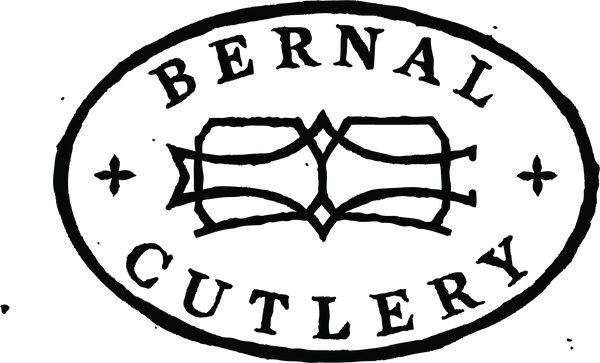-
Currency
-
NEW
- All New Products
- New Kitchen Knives
- New Kitchen Tools
- Latest Vintage
- New Outdoor & Utility
- New Pantry
-
What's in my Basket Series
- Dr. Harold McGee - Author
- Ryo Sakai -Kuma Sushi
- Ian McNemar - Woodworker, Instructor
- Anna Voloshyna - Author
- Jorge Martinex Lillard - Lolo´
- Chris Yang - Piglet & Co
- Griffin Wilson - @cabincorn
- Gabe Rudolph - Gestura Utensils
- Marc Schechter - Square Pie Guys
- Molly DeCoudreaux - Food Photographer
- Geoff Davis - Burdell Soul Food
- Jen and Wes - @crazythickasians
- Josh Donald - Bernal Cutlery
- Kelly Kozak - Bernal Cutlery
- Jessica Sullivan - Poppy SF
- Sylvan Mishima Brackett - Rintaro
- Michael Myers - Film Character
- Ali Hooke - @alihooke
- Bruce Hill - The Chef's Press
- Dylan Carasco - Butcher's Guide
- Spencer Horowitz - Hadeem
-
Japanese Knives
- Ashi Hamono
- Gihei Knives
- Godo Tadaharu
- Hado
- Hatsukokoro
- Hitohira
- Jiro Nakagawa
- Iwasaki Kamisori
- Kaji-Bei
- Kamo Shiro
- Kanehide
- Konosuke
- MAC Knife
- Masakane
- Makoto Tadokoro Marushin
- Mizuno Axes
- Morihei
- Myojin Riki Sesakusho
- Nakagawa Hamono
- Naozumi
- Nigara Hamono
- Sakai Kikumori
- Shigefusa
- Tagai
- Takada no Hamono
- Tanabe Tatara
- Yoshikazu Tanaka
- Tosa
- Tsukasa Hinoura
- Yoshikane
- Wakui
-
Global Knives
- A Wright & Son (GBR)
- Allday Goods (GBR)
- Blenheim Forge (GBR)
- Geo Wostenholm IXL (GBR)
- Ibberson (GBR)
- J Adams (GBR)
- John Nowill & Son (GBR)
- Joseph Rogers (GBR)
- Wood Tools (GBR)
- André Verdier (FRA)
- Au Sabot (FRA)
- Chazeau Honoré (FRA)
- Fontenille Pataud (FRA)
- K Sabatier (FRA)
- David Margrita (FRA)
- Opinel (FRA)
- Eichenlaub Tableware (DEU)
- Friedr Herder (DEU)
- Windmühlenmesser (DEU)
- Florentine Kitchen Knives (ESP)
- Pallares (ESP)
- Helle (NOR)
- Andersson & Copra (SWE)
- Hults Bruks Axes (SWE)
- Kalthoff Axes (SWE)
- Morakniv (SWE)
- Iisakki Jarvenpaa (FIN)
- Zirh (TUR)
- Alma Knife Co. (USA)
- Astral Works (USA)
- Bernal Cutlery (USA)
- Benchmade Knives (USA)
- Dexter Russell (USA)
- Rolin Knives (USA)
- Silverthorn (USA)
- Steelport Knife Co. (USA)
- Tactile Knife Company (USA)
-
Styles
- Bernal Cutlery Collaborations
- Knife Sets
- Carving Sets
- Japanese Kitchen Knives
- Western Kitchen Knives
- Chinese Style Cleavers
- Bread
- Butchery
- Cheese | Charcuterie
- Young Chefs
- Woodworking | Hobby | Craft
- Kamisori Razors
- Table | Steak
- Pocket & Folding
- Fixed Blade, Axes & Outdoor Tools
- Scissors | Shears | Snips
- Left Handed
- The Vault
- Vintage
- Sayas | Guards
- Sharpening
- Kitchen | Cookware
- Tableware | Service
- Pantry
- Accessories
- Deals
- Gift Cards
- INFO
or
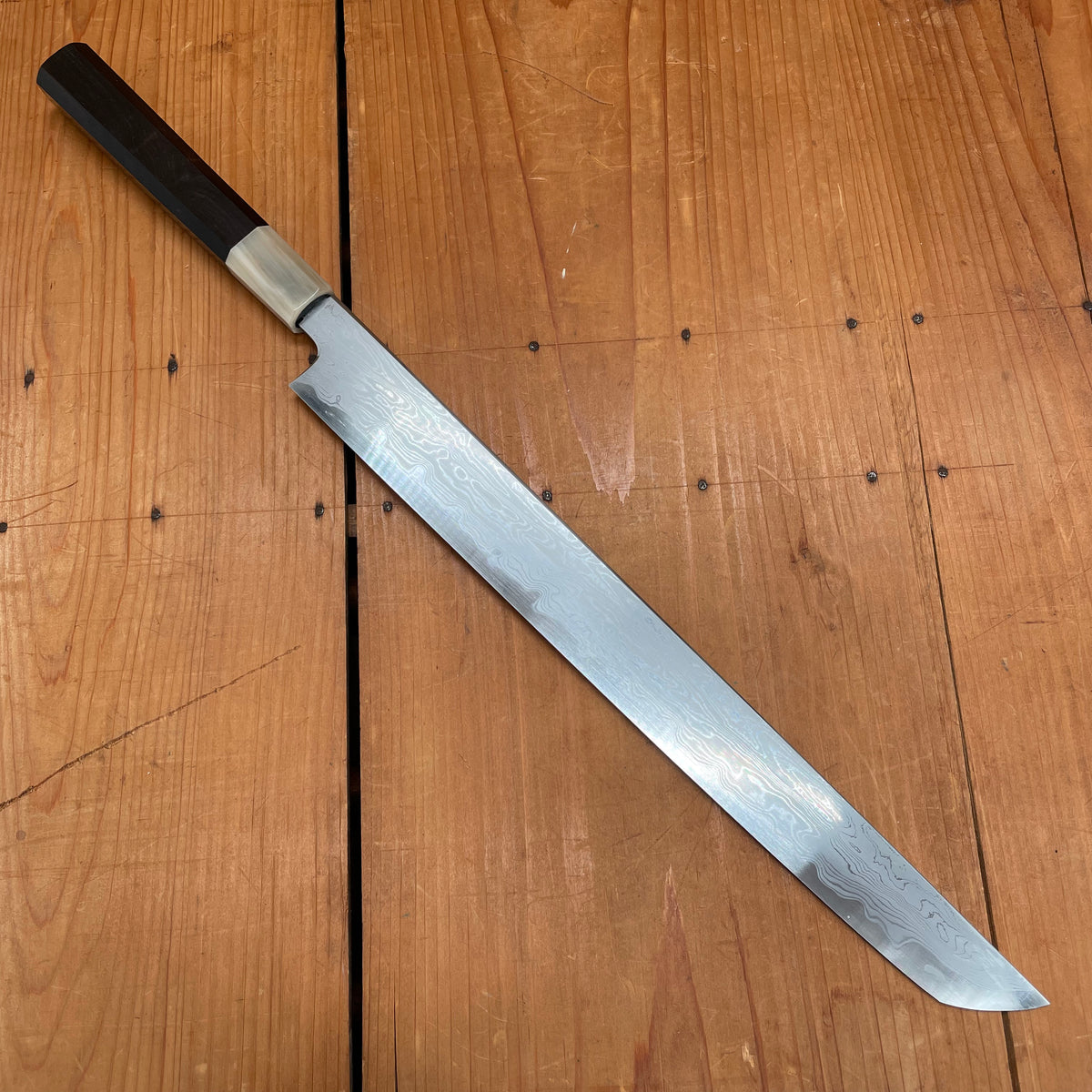
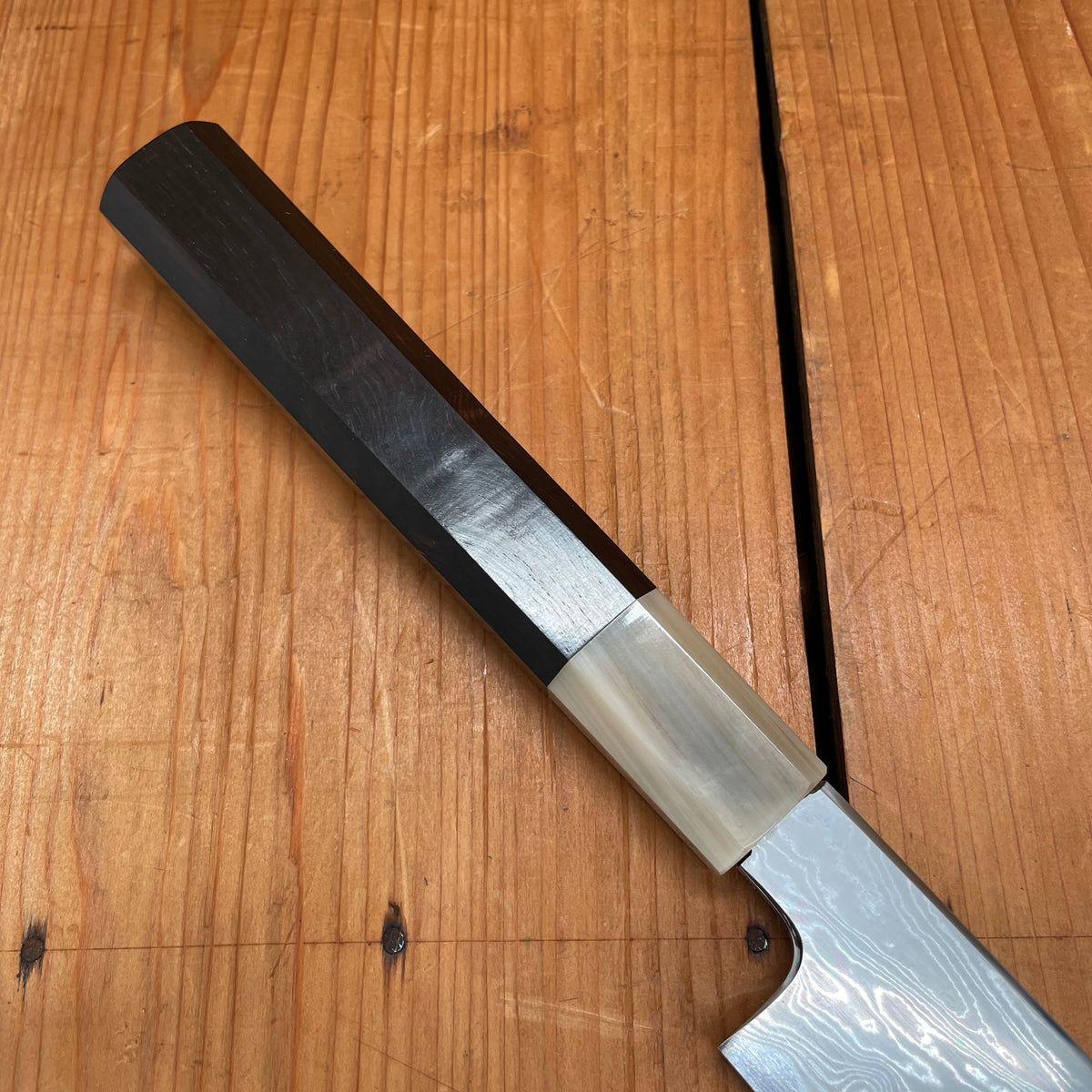
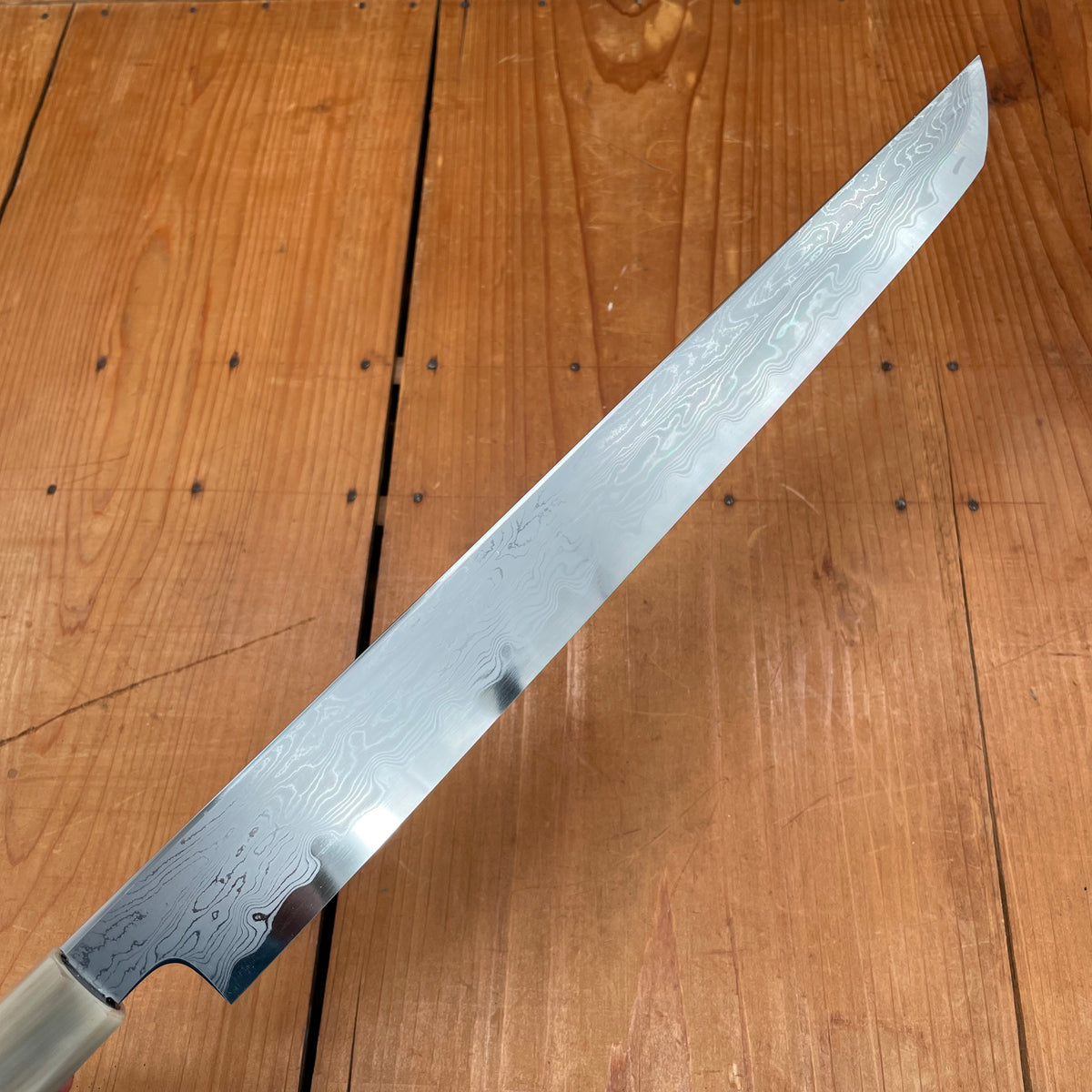
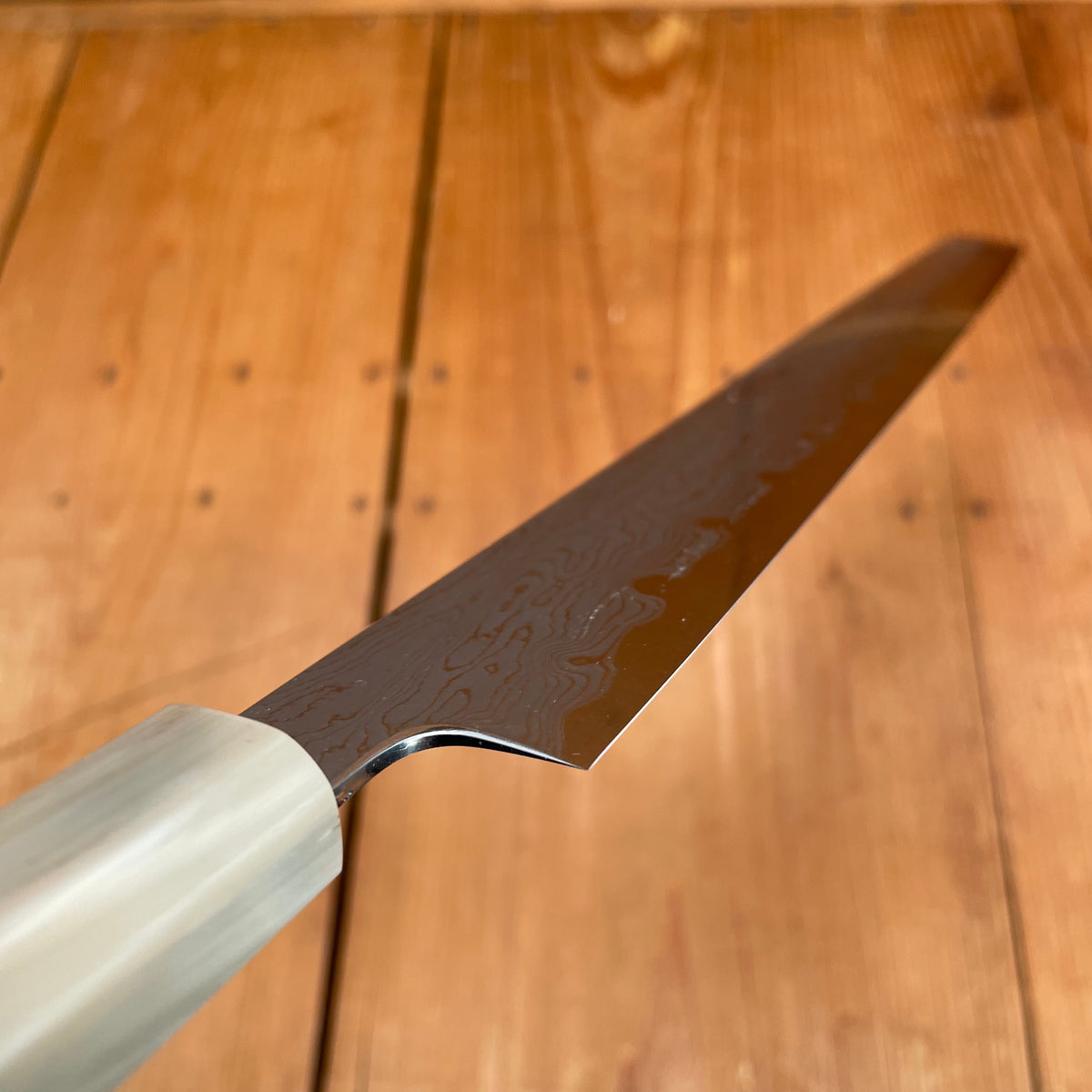
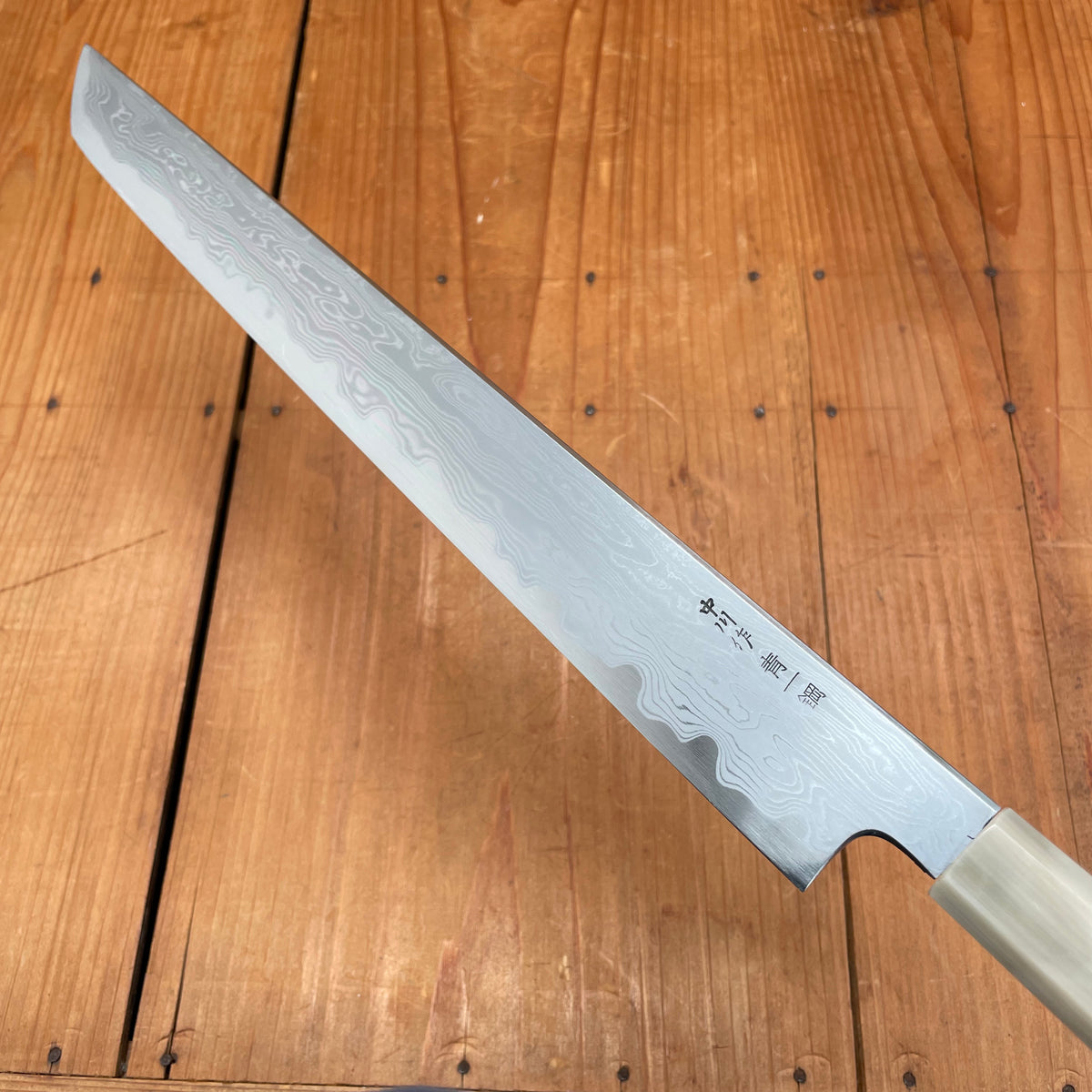
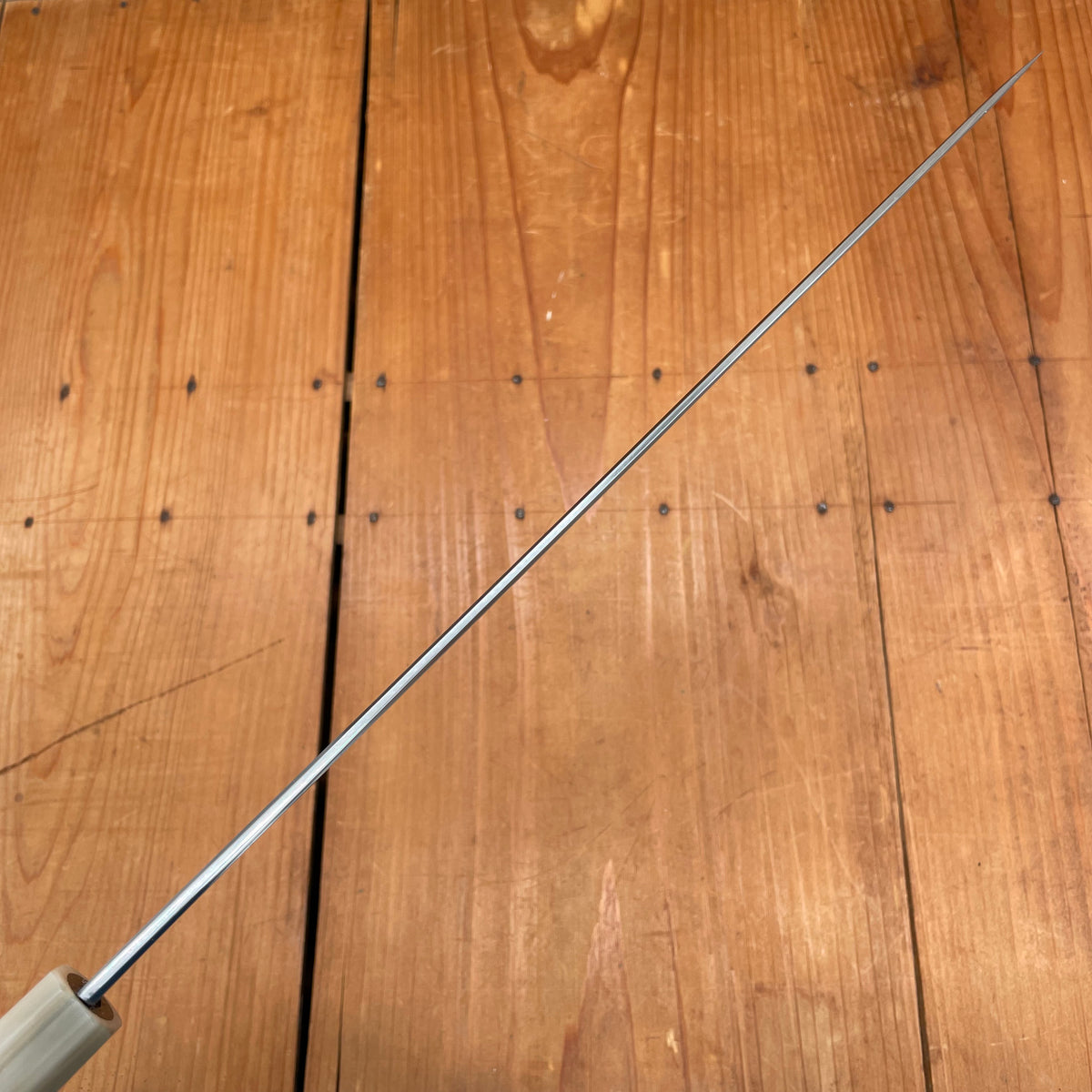
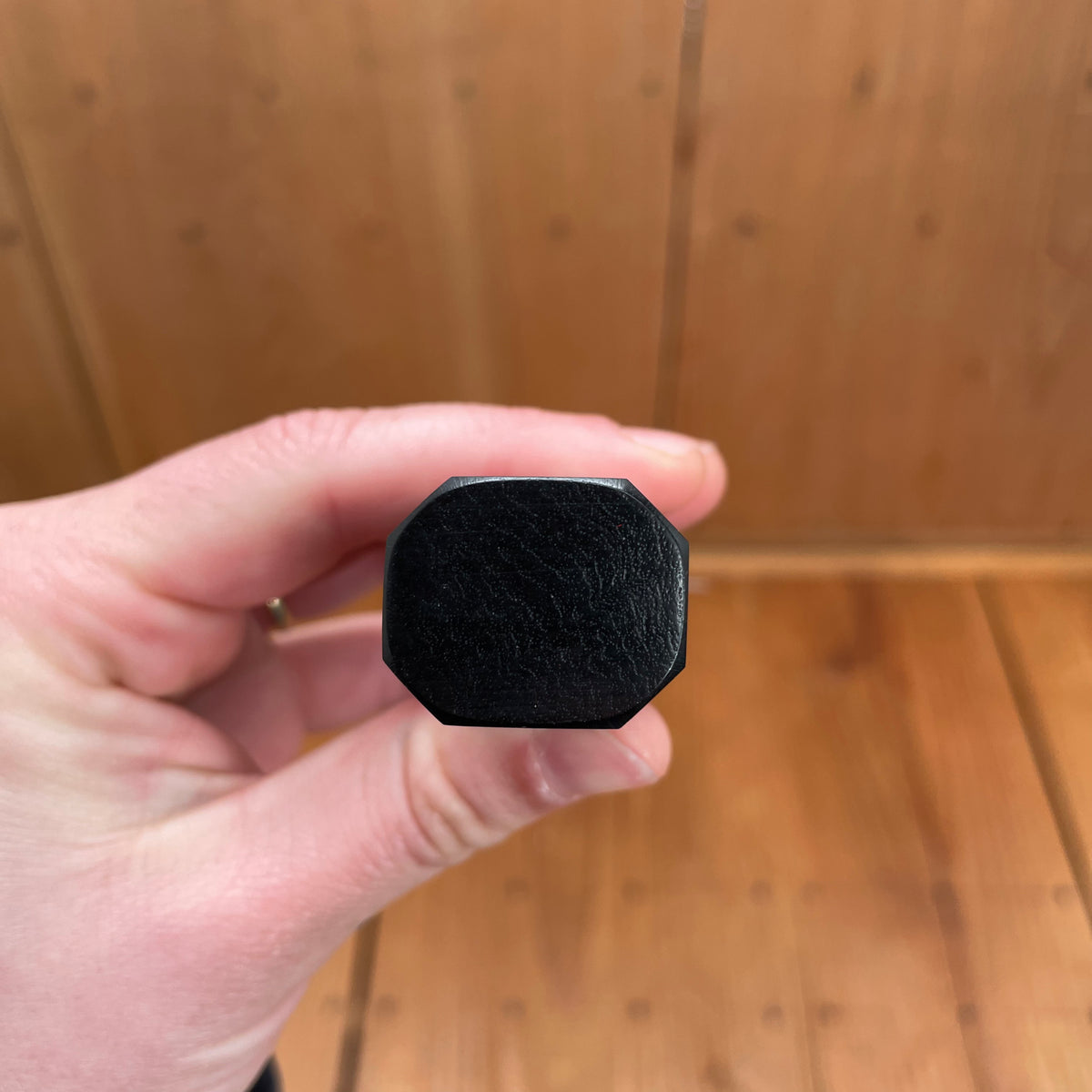
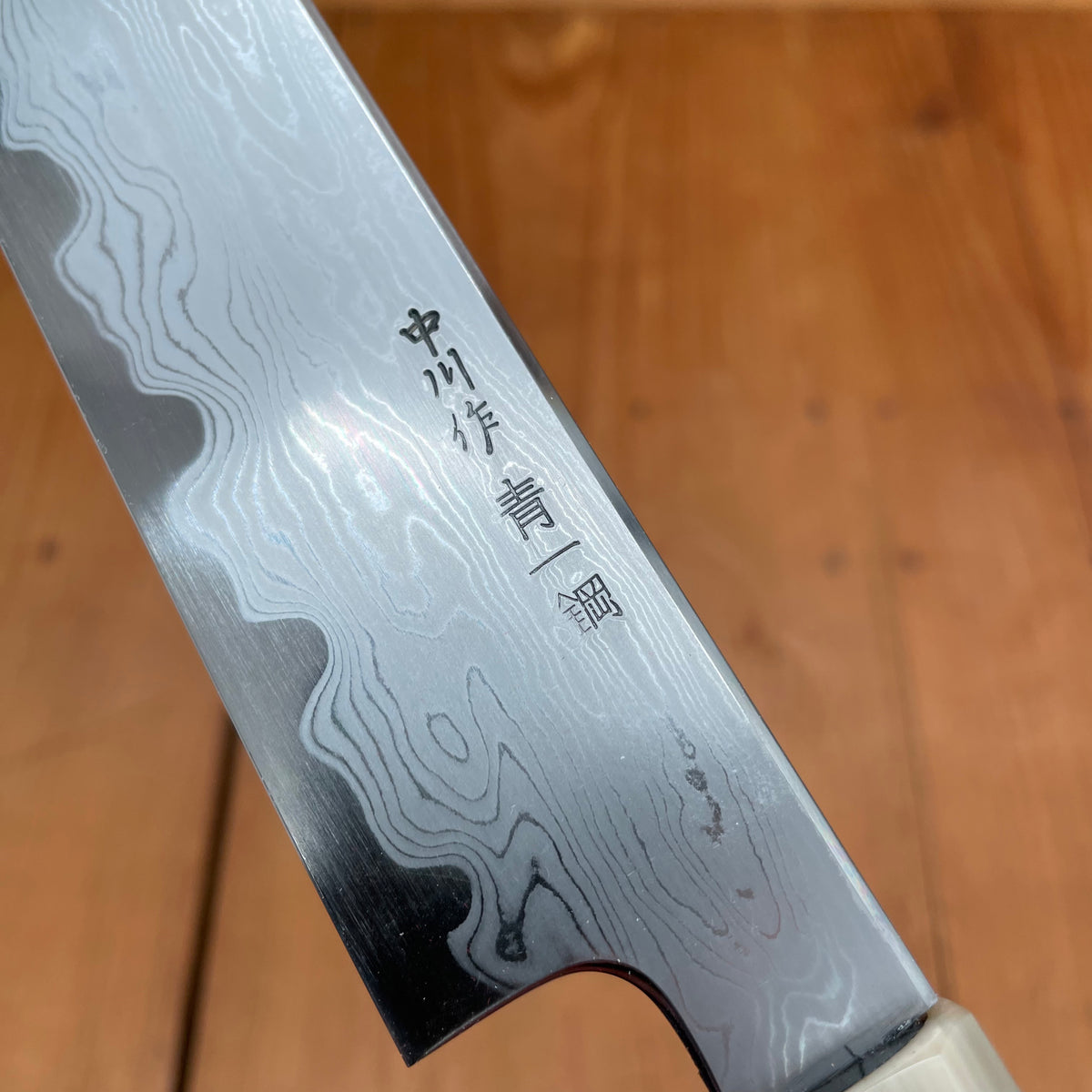
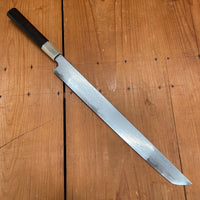
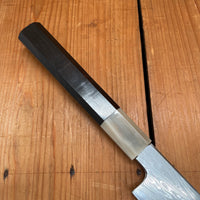
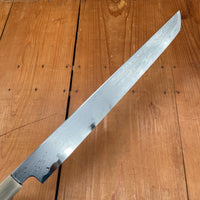
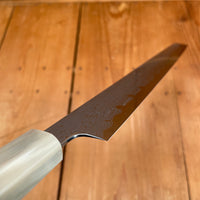
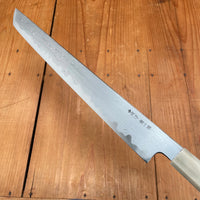
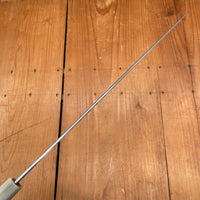
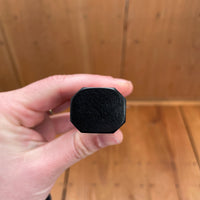
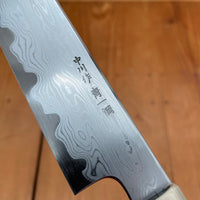
Hatsukokoro Nakagawa 330mm Sakimaru Sujihiki Aogami 1 Damascus Ebony Buffalo Horn
-
Regular Price
-
€748,23
-
Sale Price
-
€748,23
-
Regular Price
-
Sale
Sold Out
-
Unit Price
- /per
- Regular Price
- €748,23
- Sale Price
- €748,23
- Regular Price
- Unit Price
- /per
Beautifully hand forged suminagashi damascus over aogami 1 carbon steel with horn ferruled ebony handle.
Nakagawa-san's knives are characterized by excellent heat control during forging and a very thorough heat treatment. This creates knives that have superb edge formation and edge retention, with good toughness.
The sharpener on this series is credited as Kawakita Hamono operated by Kazumi Kawakita. Kawaita-san is a famed master sharpener who lists many notable and well-respected Sakai sharpeners as former students. Notably Morihiro who pioneered putting traditional Sakai wide bevels on double bevel wa-hochos. He was the sole sharpener of the Konosuke Fujiyama line (until 2018) and also works on the Sakai Kikumori Choyo series as well as a credited grinder for Nakagawa and other projects from Sakai.
This knife has a hard carbon steel core with iron cladding for added durability. The entire blade will develop a patina with use, especially with acidic foods. Special attention is needed to keep from rusting. Do not leave wet. Hand wash & dry, no dishwasher. Hardwood-end grain or softwood long grain cutting boards are preferred; avoid bamboo and plastic cutting boards. Rust can be removed with a light abrasive.
Brand: Hatsukokoro
Smith: Satoshi Nakagawa
Sharpener: Kawakita Hamono
Producing Area: Sakai, Osaka, Japan
Profile: Sakimaru Sujihiki
Size: 330mm
Blade Type: Iron Clad Carbon Steel
Steel Type: Aogami 1
Handle: Ebony & Buffalo Horn
Total Length: 475mm
Edge Length: 320mm
Handle to Tip Length: 333mm
Blade Height: 35mm
Handle Length: 142mm
Weight: 227g
Hand Orientation: Ambidextrous
This is a carbon steel knife. Carbon steel is expected to develop a dark patina with use. It needs to be hand washed and towel dried soon after use. Do not air dry. Do not put it in the dishwasher. Long exposure to moisture and debris will result in rust. Any rust development should be removed with a light abrasive.
Twisting, scraping and heavy use as well as use on hard and very dense objects can lead to edge damage. Use on a quality wooden cutting board will help the knife stay sharper for longer. Use on hard surfaces like plates and bamboo will reduce the edge life and can result in edge damage. Special attention needs to be taken to prevent edge damage. Scraping, twisting and forceful as well as using on hard or very dense foods can result in chipping.
We recommend hand sharpening on whetstones. We have found that most Japanese knives perform best at a finer finish starting around 4000. Avoid pull through sharpeners and non-water cooled mechanized sharpening. Ceramic honing rods are preferred.
Recently Viewed
About Bernal Cutlery
We are a full-service cutlery shop offering sharpening services, Japanese and Western culinary knives, vintage knives, outdoor, pocket and craft knives, cooking tools and accessories. We also offer knife skills and sharpening classes, and more.
We are proud to serve kitchen professionals, knife enthusiasts and home cooks alike. Located in the Mission District of San Francisco, California.
